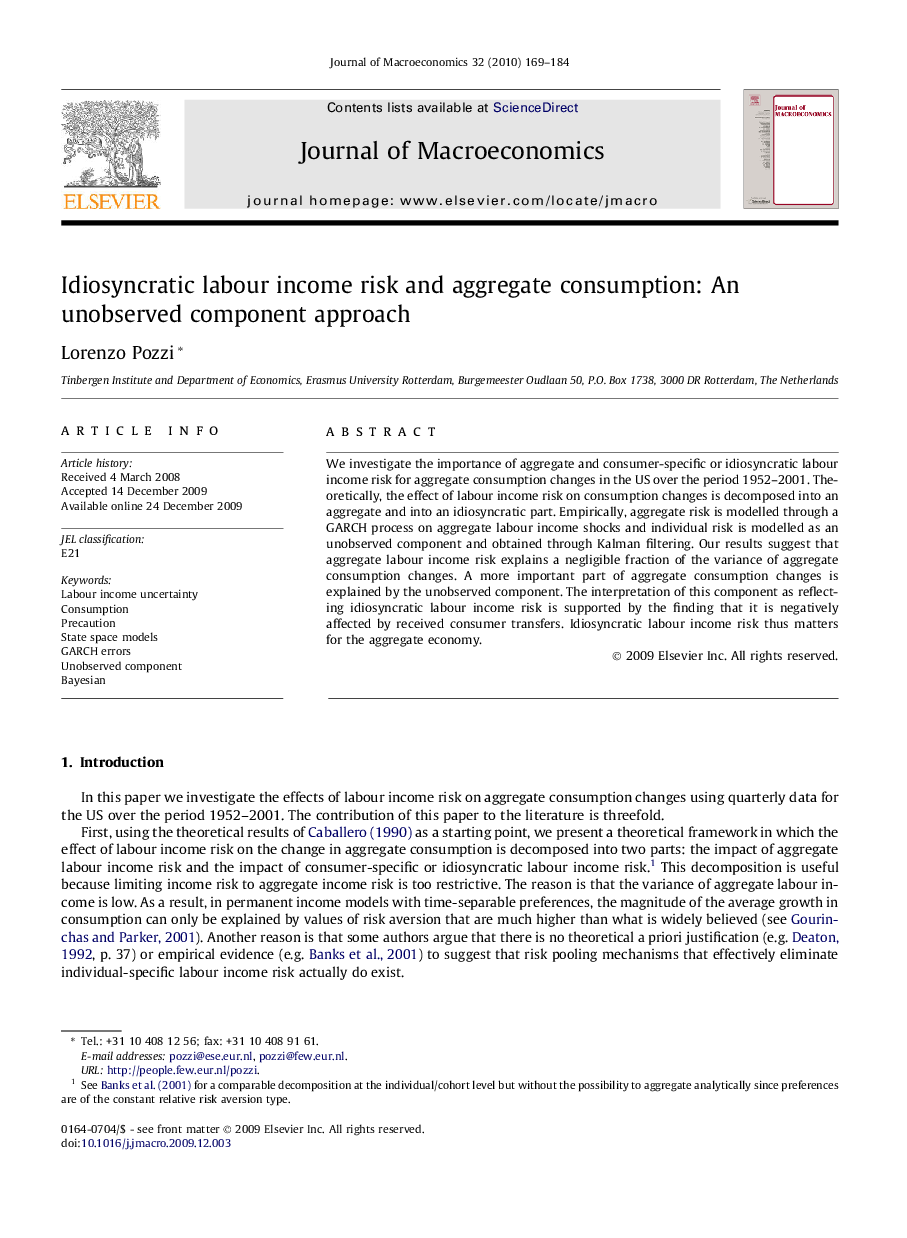| Article ID | Journal | Published Year | Pages | File Type |
|---|---|---|---|---|
| 966021 | Journal of Macroeconomics | 2010 | 16 Pages |
Abstract
We investigate the importance of aggregate and consumer-specific or idiosyncratic labour income risk for aggregate consumption changes in the US over the period 1952-2001. Theoretically, the effect of labour income risk on consumption changes is decomposed into an aggregate and into an idiosyncratic part. Empirically, aggregate risk is modelled through a GARCH process on aggregate labour income shocks and individual risk is modelled as an unobserved component and obtained through Kalman filtering. Our results suggest that aggregate labour income risk explains a negligible fraction of the variance of aggregate consumption changes. A more important part of aggregate consumption changes is explained by the unobserved component. The interpretation of this component as reflecting idiosyncratic labour income risk is supported by the finding that it is negatively affected by received consumer transfers. Idiosyncratic labour income risk thus matters for the aggregate economy.
Related Topics
Social Sciences and Humanities
Economics, Econometrics and Finance
Economics and Econometrics
Authors
Lorenzo Pozzi,
